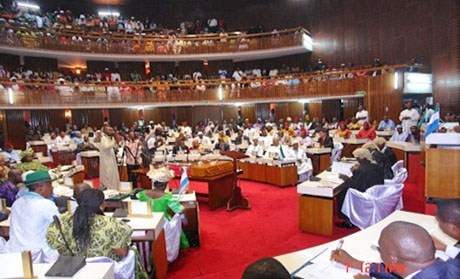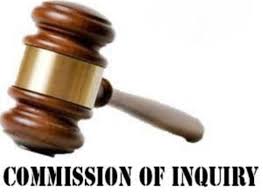Leadership – the difference with management
Leadership – what is it? Many definitions have been offered, cultural stereotypes abound, numerous programs focus on leadership development, but the question remains. In fact, leadership is many different things to different people in different circumstances. When we business people think of leadership, we often think first of famous individuals. We think of charismatic and highly successful CEOs: Jack Welch, John Chambers, Bill Gates, Steve Jobs, Oprah Winfrey. Otherwise, we may think of great political leaders: Washington, Churchill, Roosevelt. We may think of the leaders of social movements: Gandhi, Martin Luther King, Caesar Chavez. We may think of spiritual leaders: Jesus, Mohammed, and Mother Teresa. In our ‘visions of leadership’, we invite only corporate leaders and not social, political or environmental leaders. But, an exploration of leadership quickly takes us beyond the lists of the famous when we consider the examples of leadership in our own lives: family members, friends, teachers, ministers, and others who by their lives and examples have influenced and led us in various ways. When we look at leadership in communities we see many leaders who may never become famous, but are vehicles of enormous change in their surroundings. My ideal of leader is the person who has a vision, which goes towards betterment of his surroundings and stands up to lead the people by taking them along with him and becomes the driver of the change. It is then immaterial if the leadership is demonstrated in corporate world, environmental issues, community issues, social issues, information issues, human rights or any other aspect. And for me the leadership that I am very much impressed with is that of His Excellency Dr. Ernest Bai Koroma, the President of my beloved country Sierra Leone.Â
Reading one of the online newsprint I saw an headline “President Koroma: my resolve in the fight against corruption†Reading through the article the President did not mince his words and had this to say
“Since the day I was sworn into office as President of Sierra Leone, I had an agenda and outlined my priorities. I know what I want to achieve for the country within three years and further. And I’m happy to state that I am on track.â€Â
Mr. President you have done extremely well for Sierra Leone and Sierra Leoneans at home and abroad. Four five years ago there were Sierra Leoneans including myself that were ashamed to let people know that they are from Sierra Leone. The country was 78 out of 78 countries in the world. The country was in darkness and was termed the darkest city in the world. Sierra Leone was a country that people never wanted to go to. Now it is a country that the world wants to visit.  Sierra Leoneans all over the world have a lot of admiration for President Koroma because he is determined to turn Sierra Leone around politically and economically for sustainable development. The incredible leadership qualities that, Ernest Koroma, has shown in tackling his country’s economic difficulties is a clear manifestation of his determination to deliver much needed change in a country that has for so long mismanaged itself. There are Presidents from other African countries that have registered their appreciation for President Koroma. Some Kenyan friends of mine told me that they needed President Koroma in Kenya to help combat corruption.  Mr. President this is an achievement, for you in particular and for Sierra Leone in general. You have indeed put Sierra Leone on the World Map and all I can say is THANK YOU AND GOD BLESS!! KEEP THE FLAME BURNING!!!!
Leadership without management sets a direction or vision that others follow, without considering too much how the new direction is going to be achieved. Other people then have to work hard in the trail that is left behind, picking up the pieces and making it work. Example: In “Lord of the Rings”, at the council of Elrond, Frodo Baggins rescues the council from conflict by taking responsibility for the quest of destroying the ring – but most of the management of the group comes from others.
Management without leadership controls resources to maintain the status quo or ensure things happen according to already-established plans. Example: a referee manages a sports game, but does not usually provide “leadership” because there is no new change, no new direction – the referee is controlling resources to ensure that the laws of the game are followed and status quo is maintained.
It is only when leadership is combined with management – it both sets a new direction and manages the resources to achieve it. This is exactly what is happening with President Koroma. He has both the leadership and management skills and as a result, though he met a battered economy and Sierra Leone was in the dark, he stood up taller than the country tree in the middle of Freetown and said “I AM GOING TO TAKE UP THIS CHALLENGE AND TURN SIERRA LEONE AROUNDâ€Â
In another online newsprint the headline†A Country in Transition – Sierra Leone’s President Koroma’s Vision of a New Nation†took time to catalogue some of the achievements of the President and towards the end the article had this to say
“But one thing I know is that, this president cannot be deterred by political nonsense and foolish detractors. He is determined to press on with an Agenda for change that will move the country from dependent on overseas financial support, to a country that can once more stand on its feet. This is not the moment for Sierra Leoneans to allow themselves to be fooled once more. The people should not forget the sleepless nights of darkness and despair, when hope was overwhelmed by desperation to survive; when a government promises and never delivers; when the country’s coffers were looted at the expense of the suffering masses; when their loved ones where shot in cold blood in the name of holding on to power; when a government handed power to another with barely enough money in the country’s vault to get it started, and the country was brought to its knees and had to be rescued by delicate negotiations by a man whose mission is to run the country like a business!!
The ability of the leader to influence others is the key to the success of every organization or working environment that one could become a part of. I believe that two qualities in particular that characterize President Koroma’s leadership style: are the ability to establish a clear vision and the ability to set an example. Establishing a clear vision up front allows him to convey a sense of purpose and responsibility to every member of his team. A clear vision also provides a roadmap for setting goals and developing action plans. As each action plan is implemented and each goal is accomplished, project milestones are reached and overall progress is observed. The impression of progress – as well as evidence thereof – is the key to maintaining a motivated and productive team. GOD BLESS MAMA SALONE.
Nanette Thomas President APC Texas ChapterStay with Sierra Express Media, for your trusted place in news!
© 2010, https:. All rights reserved.






